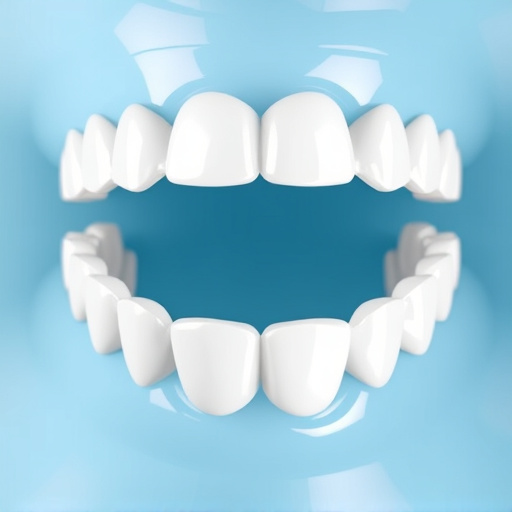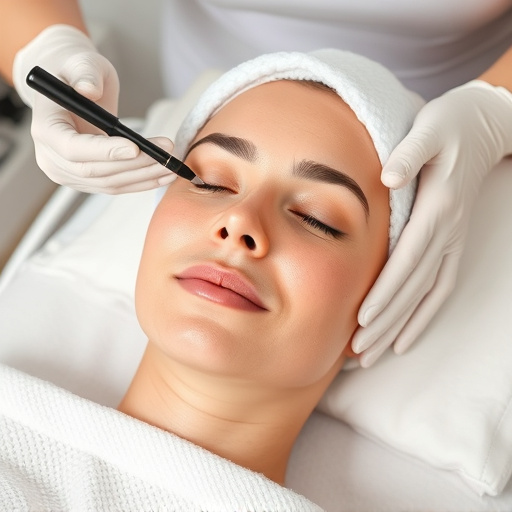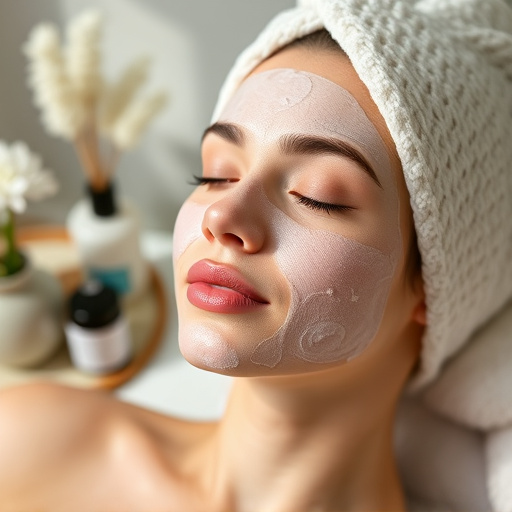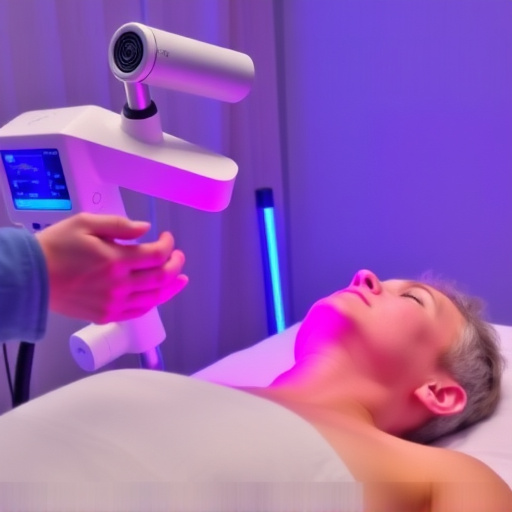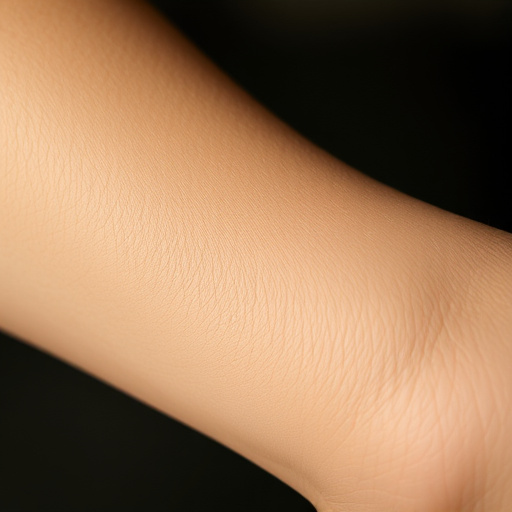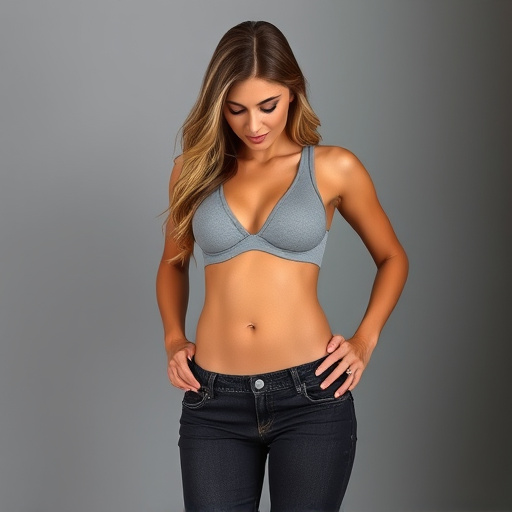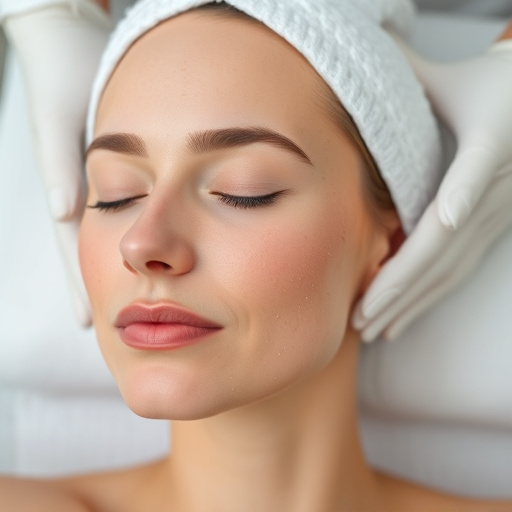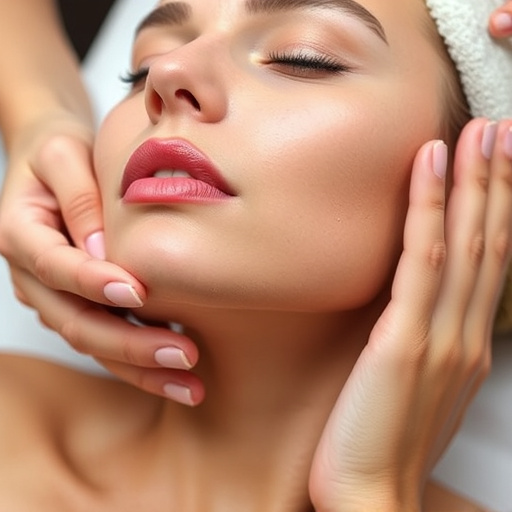Ingrown hair prevention for sensitive skin involves understanding and addressing root causes like rapid hair growth, improper shaving techniques, and dull razors. Non-surgical treatments, tailored skincare routines, and body contouring techniques can exfoliate skin, unclog follicles, hydrate, soothe, improve texture, and reduce ingrown hairs. Regular gentle exfoliation with AHAs or BHAs, proper hygiene, sharp blades, and moisturizing creams are key. For facial treatments, deep cleaning and gentle extracts help, while body contouring should be done cautiously. Always patch test new products and consult a dermatologist for personalized advice to maintain healthy skin.
Ingrown hairs can be a persistent problem, especially for those with sensitive skin. This article delves into the science behind ingrown hairs and offers tailored strategies for prevention, focusing on sensitive skin types. We explore the root causes and provide practical tips to navigate daily skincare routines effectively. Learn about topical treatments and discover a step-by-step guide to maintaining clear, smooth skin, free from ingrown hairs. Embrace a proactive approach to ingrown hair prevention with our comprehensive insights.
- Understanding Ingrown Hair and Sensitive Skin
- Strategies for Preventing Ingrown Hairs
- Topical Treatments and Skincare Routine
Understanding Ingrown Hair and Sensitive Skin

Ingrown hairs are a common concern, especially for those with sensitive skin types. These occur when hair follicles become blocked, causing hair to grow back into the skin instead of outward. For sensitive skin, this can lead to irritation, redness, and even infection. Understanding the root causes is crucial in preventing ingrown hair. It often stems from factors like rapid hair growth, improper shaving techniques, or using dull razors. Sensitive skin, with its delicate nature, may also be more reactive to certain products and ingredients commonly found in skincare routines.
Addressing ingrown hair prevention for sensitive skin involves adopting a gentle approach. Non-surgical treatments like chemical peels and microdermabrasion can help exfoliate the skin and unclog follicles. Professional skincare routines tailored to sensitive skin types, incorporating hydrating and soothing ingredients, can also be beneficial. Additionally, body contouring techniques, when done carefully, can improve skin texture and reduce the appearance of ingrown hairs by smoothing out the skin’s surface.
Strategies for Preventing Ingrown Hairs

Ingrown hair prevention is a crucial aspect of maintaining healthy skin for those with sensitive skin types. Here are some effective strategies to keep ingrown hairs at bay and promote smooth, clear skin. Firstly, gentle exfoliation is key. Regularly exfoliating your skin helps remove dead skin cells and unclogs pores, reducing the chances of hair follicles becoming trapped beneath the surface. Opt for chemical exfoliants with AHAs or BHAs, which are less irritating to sensitive skin.
In addition to exfoliation, maintaining proper hygiene and avoiding harsh grooming practices is essential. Always clean your skin thoroughly after workouts or sweats, as bacteria can contribute to ingrown hairs. When shaving, use a sharp blade, shave in the direction of hair growth, and consider using moisturizing shaving creams or gels to protect the skin. For facial treatments, deep cleaning and gentle extracts can help, while body contouring techniques should be approached with caution to avoid further irritation.
Topical Treatments and Skincare Routine

For sensitive skin types, addressing ingrown hair prevention requires a thoughtful approach to topical treatments and skincare routines. Opt for gentle, chemical-free exfoliants like those containing alpha hydroxy acids (AHAs) or beta hydroxy acids (BHAs), which help unclog pores and smooth out the skin’s surface without causing irritation. Incorporating pore refinement techniques, such as regular use of a face scrub or clay mask, can also be beneficial.
Incorporating anti-aging treatments like microneedling therapy into your routine might seem counterintuitive for sensitive skin, but when done correctly with a trained professional, it can promote collagen production and enhance overall skin texture while reducing the risk of ingrown hairs. Remember to always patch test new products and consult a dermatologist for personalized advice tailored to your specific skin type and concerns.
For those with sensitive skin, preventing ingrown hairs requires a tailored approach. By understanding the root causes and implementing effective strategies, such as regular exfoliation, choosing the right razors, and maintaining a gentle skincare routine, it’s possible to minimize the occurrence of ingrown hairs and achieve smoother, healthier skin. Incorporating suitable topical treatments can further enhance ingrown hair prevention, ensuring your sensitive skin stays comfortable and free from unwanted stubble.



